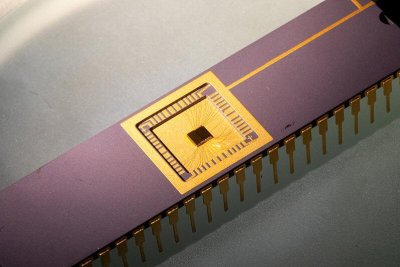Topic: Richard Feynman
Richard Phillips Feynman (pronounced /ˈfaɪnmən/; May 11, 1918 – February 15, 1988) was an American physicist known for the path integral formulation of quantum mechanics, the theory of quantum electrodynamics and the physics of the superfluidity of supercooled liquid helium, as well as work in particle physics (he proposed the parton model). For his contributions to the development of quantum electrodynamics, Feynman received the Nobel Prize in Physics in 1965, together with Julian Schwinger and Sin-Itiro Tomonaga. Feynman developed a widely used pictorial representation scheme for the mathematical expressions governing the behavior of subatomic particles, which later became known as Feynman diagrams. During his lifetime and after his death, Feynman became one of the most publicly known scientists in the world.
He assisted in the development of the atomic bomb and was a member of the panel that investigated the Space Shuttle Challenger disaster. In addition to his work in theoretical physics, Feynman has been credited with pioneering the field of quantum computing, and introducing the concept of nanotechnology (creation of devices at the molecular scale). He held the Richard Chace Tolman professorship in theoretical physics at Caltech.
Feynman was a keen popularizer of physics in both his books and lectures, notably a 1959 talk on top-down nanotechnology called There's Plenty of Room at the Bottom, and The Feynman Lectures on Physics. Feynman is also known for his semi-autobiographical books Surely You're Joking, Mr. Feynman! and What Do You Care What Other People Think?, and through books about him, such as Tuva or Bust! He was also known as a prankster, juggler, safecracker, and a proud amateur painter and bongo player. Richard Feynman was regarded as an eccentric and a free spirit. He liked to pursue multiple, seemingly unrelated, paths, such as biology, art, percussion, Maya hieroglyphs, and lock picking.
It uses material from the Wikipedia article "Richard Feynman."







